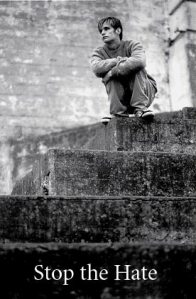After the Civil War, Holmes entered Harvard Law School, where his best friend was William James. The New York Times obituary on Holmes reported that the two young men went to Europe together: “while James went on, continuing in Germany his search for the meanings of the universe, Holmes decided that ‘maybe the universe is too great a swell to have a meaning,’ that his task was to ‘make his own universe livable,’ and he dove deep into the study of the law.”
Holmes was admitted to the bar in 1866. He became coeditor of the American Law Review in 1870. Holmes wrote his legal treatise, The Common Law, in 1881, a 15-year labor predicated on his belief that “The life of the law has not been logic; it has been experience.” His recodification of the law from religious foundations to modern jurisprudence was pivotal to the evolution of legal scholarship. Holmes urged “judicial restraint,” or the divorcing of private views from legal opinions.
A professor at Harvard Law School, he was appointed at age 41 as an associate justice on the Massachusetts Supreme Court, eventually becoming chief justice. President Teddy Roosevelt appointed him to the U.S. Supreme Court in 1902. He retired in 1932, as the oldest judge to serve. Holmes earned the sobriquet, “The Great Dissenter,” for his many famous dissents, which have long since been adopted as mainstream by courts. Among his well-known legal adages: “The mind of the bigot is like the pupil of the eye: the more light you shine on it, the more it will contract.” “Taxes are the price we pay for a civilized society.” “Three generations of imbeciles are enough.” “The most stringent protection of free speech would not protect a man in falsely shouting fire in a theater. . .” “The right to swing my fist ends where the other man’s nose begins.” Holmes, like his father, was a Unitarian, who believed in a god, but was creedless. In his obituary in 1935, the New York Times quoted Holmes:When men have realized that time has upset many fighting faiths, they may come to believe even more than they believe the very foundations of their own conduct that the ultimate good desired is better reached by free trade in ideas — that the best test of truth is the power of the thought to get itself accepted in the competition of the market, and that truth is the only ground upon which their wishes can be carried out. That, at any rate, is the theory of our Constitution. It is an experiment, as all life is an experiment.


























You must be logged in to post a comment.